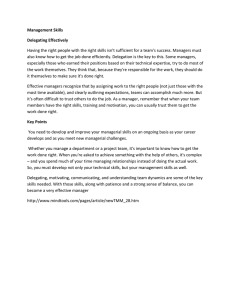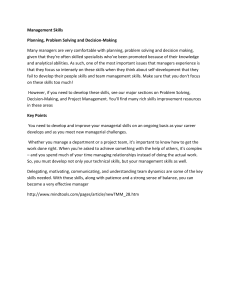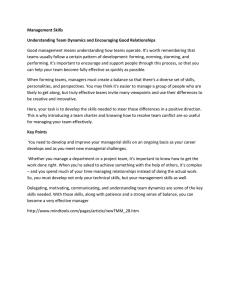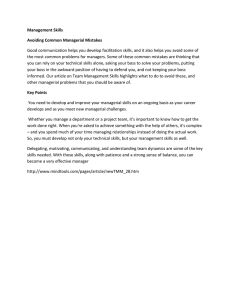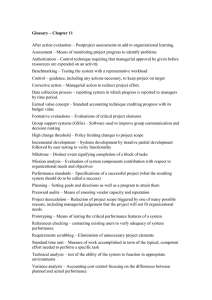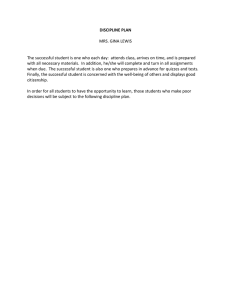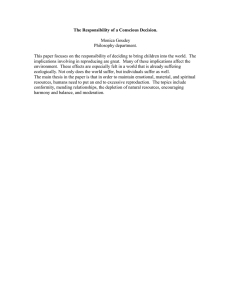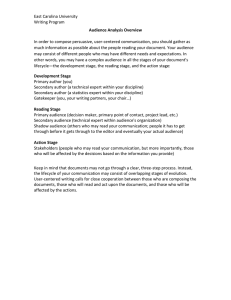Management Skills4
advertisement
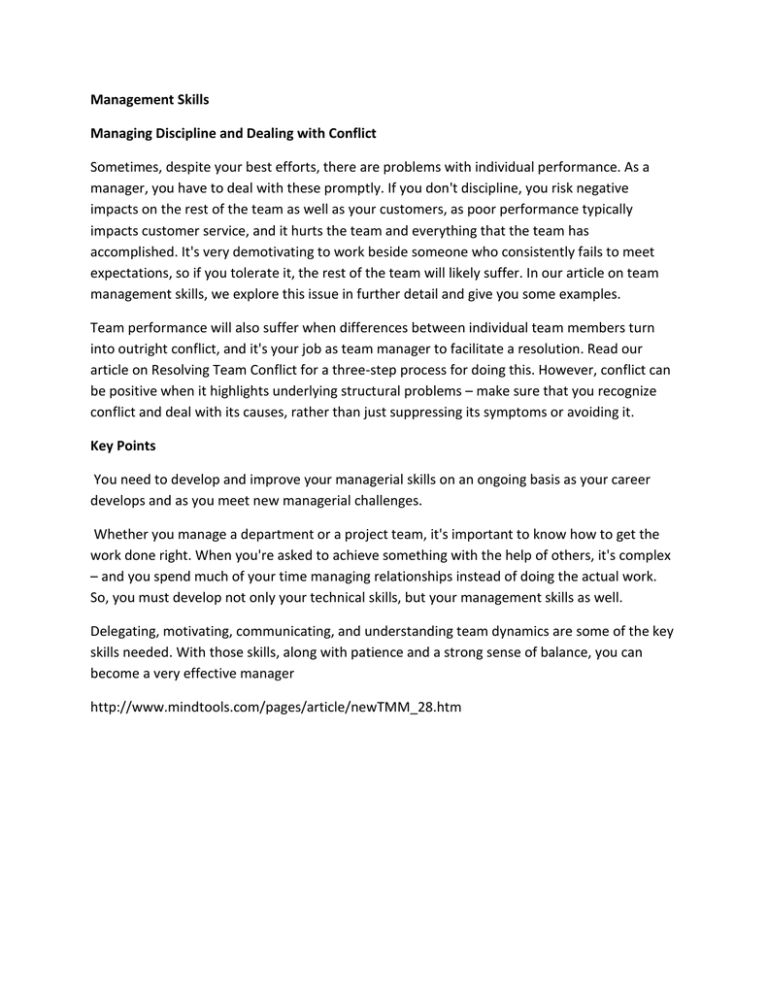
Management Skills Managing Discipline and Dealing with Conflict Sometimes, despite your best efforts, there are problems with individual performance. As a manager, you have to deal with these promptly. If you don't discipline, you risk negative impacts on the rest of the team as well as your customers, as poor performance typically impacts customer service, and it hurts the team and everything that the team has accomplished. It's very demotivating to work beside someone who consistently fails to meet expectations, so if you tolerate it, the rest of the team will likely suffer. In our article on team management skills, we explore this issue in further detail and give you some examples. Team performance will also suffer when differences between individual team members turn into outright conflict, and it's your job as team manager to facilitate a resolution. Read our article on Resolving Team Conflict for a three-step process for doing this. However, conflict can be positive when it highlights underlying structural problems – make sure that you recognize conflict and deal with its causes, rather than just suppressing its symptoms or avoiding it. Key Points You need to develop and improve your managerial skills on an ongoing basis as your career develops and as you meet new managerial challenges. Whether you manage a department or a project team, it's important to know how to get the work done right. When you're asked to achieve something with the help of others, it's complex – and you spend much of your time managing relationships instead of doing the actual work. So, you must develop not only your technical skills, but your management skills as well. Delegating, motivating, communicating, and understanding team dynamics are some of the key skills needed. With those skills, along with patience and a strong sense of balance, you can become a very effective manager http://www.mindtools.com/pages/article/newTMM_28.htm
